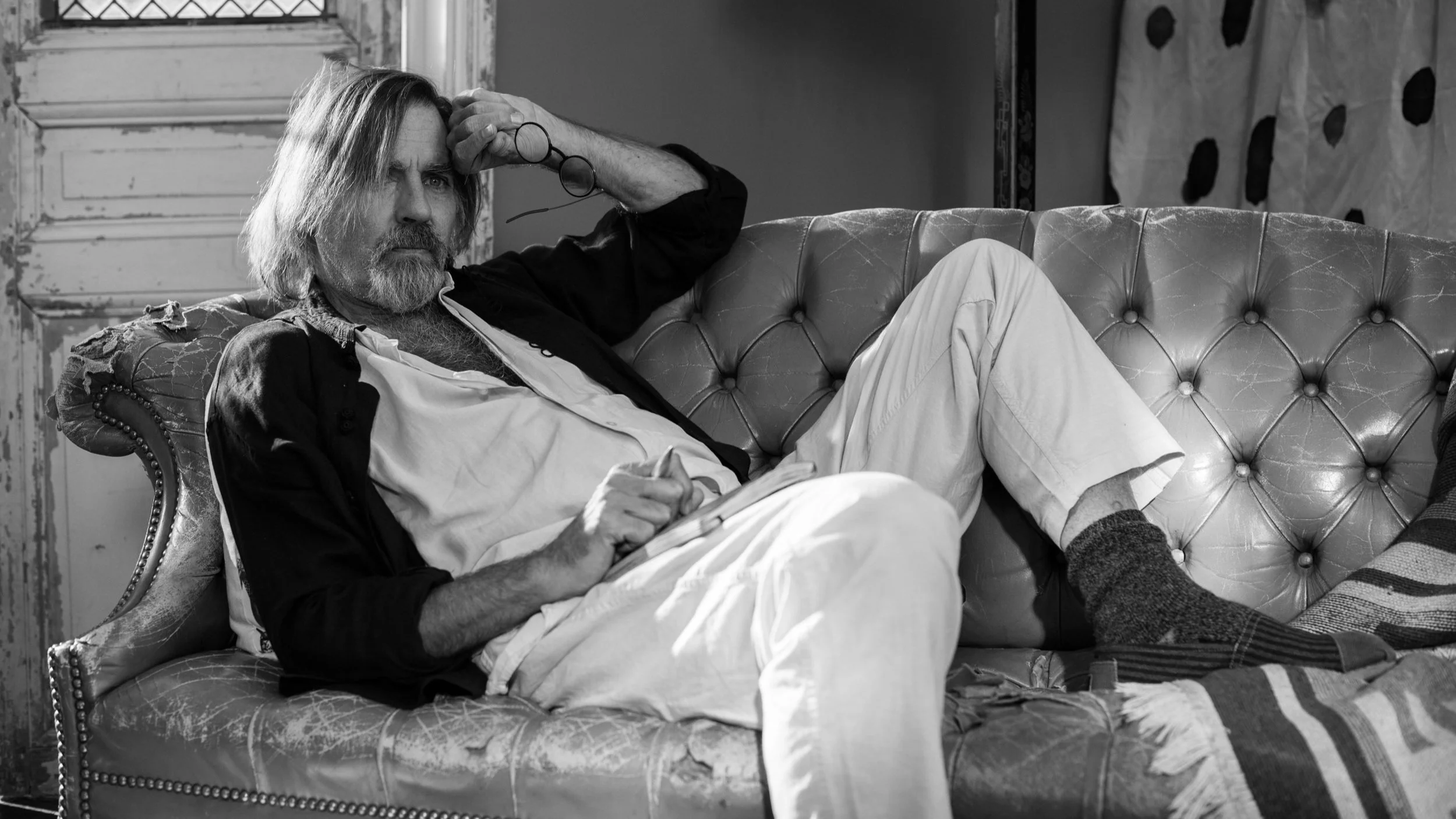A Bird Flew In
Kirsty Bell’s directorial debut brings back the British portmanteau picture.
Jeff Fahey in repose
In the mid-1940s, Ealing Studios took a brief detour from their usual ground by making two films involving the supernatural: The Halfway House (1944) was followed by a true classic, Dead of Night (1945), which incorporated four tales within a framework itself significantly dramatic and employed the services of four different directors. In retrospect this could be seen as a notable precursor of the portmanteau movies which became popular a few years later. They started with the three features made in Britain between 1948 and 1951 that featured stories by W Somerset Maugham and which needed no further links other than his authorship and an introduction by the writer himself. Encouraged by the success of Quartet and its successors, Hollywood got in on the act with O. Henry's Full House (1952). The appeal of these portmanteau pictures also spread to France with such films as 1952’s The Seven Deadly Sins and many of them again opted for utilising a range of directors.
A variation of this format came in the form of works incorporating several storylines within a single narrative, one that looked at various lives linked by the fact of their being present at some event, be it passengers caught up in a rail crash (Ealing’s Train of Events 1949) or racegoers attending the Derby (1952’s Derby Day). This later model was also the basis of William Fairchild’s The Extra Day in 1956 which, focussing on five extras on a film who would be recalled for a reshoot, blended together stories about each of them. It is probably just coincidence, but the new British film A Bird Flew In has much in common with The Extra Day. It too intercuts tales about people working on a film - here it’s one on which shooting is completed in the opening scene. This connection is then used to intertwine narratives about their lives over the next two months. The one other thing that links these people is the fact that Covid-19 has recently struck so, like everybody else at the time, the characters are having to deal with governmental restrictions.
A Bird Flew In is a first feature by Kirsty Bell who also has a key role in it as Naomi. She is the film director who finds that Covid is disrupting the editing process which she is now undertaking with Lucy (Morgana Robinson). In the case of Naomi, it can be said that her tale has two threads within it since, in addition to the portrayal of her editing problems, we witness the tensions she experiences due to having an unfaithful husband (Bill Fellows) who is in Australia and can't fly back due to the pandemic. This view of an uneasy marriage counts as one of four contrasted love stories. The others each have their own distinct focus: a mixed-race couple have conflicting attitudes when facing an unplanned pregnancy; an American actor, Peter, hesitates to reveal his feelings for an actress who has returned to her native France; a young man whose girl has broken off their relationship views her via a video camera but sadly rather than hornily. The remaining tales touch on loneliness made worse by the isolation imposed by Covid, be it an actress losing her agent and close to a breakdown (Camilla Rutherford) or an older actor facing ill-health as well as ageing (Derek Jacobi), while the editor Lucy has to come to terms with the Covid death of her mother occurring when regulations prevent her from being with her.
Save in the sphere of horror movies, including those favoured by Amicus films in their day, the portmanteau genre would become comparatively rare so it is a surprise to find A Bird Flew In taking it up. It's not at all a bad effort and, if the writing sometimes needs to be filled out further and also has some definitely weaker moments (especially the tiresome poetic voice overs given to Jeff Fahey as Peter), the acting helps even if some talents are underused (Jacobi, for example, although that is even more true of Frances Barber who comes in to offer him medication). It's also the case that with so many plot threads to handle some fade away and in any case intermingling them can be disruptive to the flow of the narrative. Indeed, the format tends to reduce emotional involvement and leaves the viewer feeling that the treatment of the stories is such that, while watchable enough, the film lacks depth. Nevertheless, for Kirsty Bell as director this is an encouraging calling card. Furthermore, the off-beat choice of photographing it in black-and-white widescreen is a good one since it brings out the space around the various figures and that underlines the way in which the pandemic cut off individuals from their communities.
MANSEL STIMPSON
Cast: Kirsty Bell, Derek Jacobi, Jeff Fahey, Sophie Kennedy Clark, Daniel Ward, Sadie Frost, Frances Barber, Morgana Robinson, Julie Dray, Camilla Rutherford, Bill Fellows, Michael Winder, Nikita Mehta, Daniel Attwell.
Dir Kirsty Bell, Pro Ben Charles Edwards, Screenplay Dominic Wells and Elizabeth Morris, Ph Sergio Delgado, Pro Des Trinity Tristen, Ed John Smith, Music Al Joshua, Costumes Becky Seager.
Goldfinch-Studio Soho Distribution.
91 mins. UK. 2021. UK Rel: 30 September 2022. Cert. 15.


